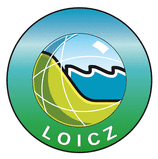Constructing Epistemic Landscapes
The construction of knowledge maps, demonstrated in this paper, is designed to show the epistemic landscape of cities, countries or regions. Knowledge assets, knowledge producing and disseminating organisations are referenced to spatial objects and integrated into GIS. They are further represented in thematic maps and in 3-D perspective graphs. Special attention is given to mapping and measuring knowledge clusters. Statistical procedures to measure the degree of knowledge clustering are discussed and ways are indicated to compare and determine the emergence of knowledge clusters. We conclude that the construction of knowledge maps showing the complexity of epistemic landscapes will enhance the chances of government agencies, companies and civic organisations to understand and use knowledge for development. This paper is in the first place meant as guideline for the related analysis.
Hans-Dieter Evers, Sven Genschick, Benjamin Schraven
Full text: download




